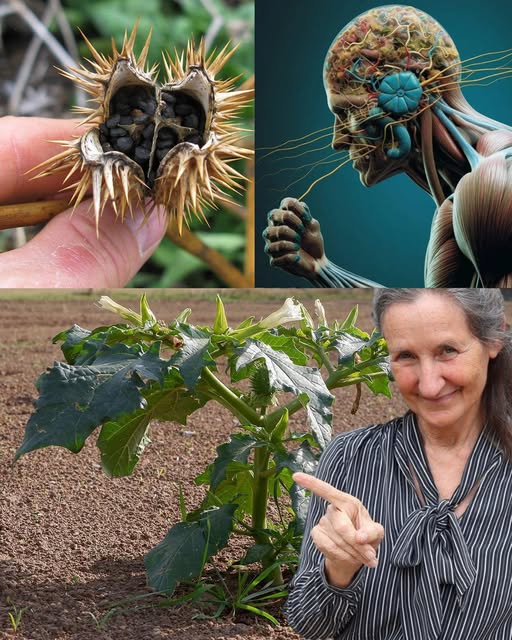Beware the Dea.dly Beauty of Datura: Why You Should Steer Clear of These Toxic Plants
Often referred to as Thorn Apple or Devil’s Trumpet, the Datura genus is both aesthetically pleasing and poisonous. These plants may be visually striking with their trumpet-shaped blooms and spiny seed pods, but both people and animals are seriously threatened by their toxicity. Here is everything you need to know about Datura’s risks and why you should stay away from these plants at all costs.
What Is Datura?
Datura belongs to the nightshade family, Solanaceae, and originates from the Americas. It has since spread worldwide, thriving in disturbed soils, roadsides, and gardens. While some cultivate Datura for its ornamental appeal, its extreme toxicity makes this a risky choice.
Identified by its large, funnel-shaped flowers in shades of white, purple, or yellow, and distinctive spiny seed pods, every part of the Datura plant is poisonous.
Common Datura Species
Datura stramonium (Jimsonweed or Thorn Apple):
Known for its white or purple trumpet flowers and spiky seed pods, this species is infamous for its hallucinogenic properties, though even small doses can result in severe poisoning.
Datura metel (Horn of Plenty):
Valued for its ornamental beauty, this species features large flowers in vibrant hues of white, yellow, or purple. Traditionally used in Ayurvedic medicine, it carries the same toxic risks as others in the genus.
Datura inoxia (Moonflower):
With fragrant, white, night-blooming flowers, this species is often mistaken for the harmless Moonflower vine, leading to accidental poisoning. Its seeds and flowers are particularly potent in toxic alkaloids.
Datura ferox (Long-spined Thorn Apple):
Characterized by its long, spiny seed pods, this species contains one of the highest concentrations of toxic compounds, making it especially hazardous.
Why Is Datura So Dangerous?
Datura contains potent tropane alkaloids, including atropine, scopolamine, and hyoscyamine, which disrupt the central nervous system. These compounds cause severe symptoms and can be fatal even in small amounts.
Datura Poisoning Symptoms
Delirium and Hallucinations: Victims frequently have intense and terrifying hallucinations.
Blurred Vision and Dilated Pupils: Light sensitivity and vision impairment are frequent.
The classic symptoms of atropine intoxication are dry mouth and difficulty swallowing.
Elevated blood pressure and heart rate: These symptoms might worsen and lead to cardiovascular issues.
Seizures and Coma: In extreme situations, poisoning may result in death, coma, or respiratory failure.

